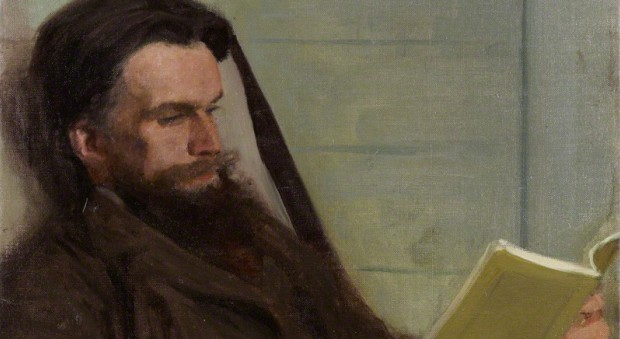This post discusses historical attitudes to sex, sexuality and gender, and quotes language and attitudes considered offensive today.
Digging through the entries in the Lives of the fellows – the RCP’s series of obituaries of fellows, commonly known as ‘Munk’s Roll’ – it’s rare to find mention of sex or sexuality, let alone same-sex attractions. However, there are glimpses in a few of the thousands of published obituaries of how attitudes in society and within the medical professional have changed over time.
Today, Henry Havelock Ellis (1859–1939) is remembered as an important figure in LBGT history: he wrote the multi-volume Studies in the Psychology of Sex, which included the first serious study of homosexuality published in Britain. It was, inevitably, quickly banned by the UK government for being obscene. Havelock Ellis’ obituary in Munk’s Roll is, however, unusually impersonal and perfunctory. It records, for the avoidance of doubt, that he was elected as an RCP fellow under a special bye-law, and rather dismissively comments that he ‘spent his days studying English art and literature, and collecting facts about normal and abnormal sexual behaviour’.

An obituary of Bertrand Edward, Viscount Dawson of Penn (1864–1945) written in the 1940s, notes guardedly of how Penn ‘chose to advance progressive views on birth control and the sex relationship’ in a speech in 1921 advocating for the use of birth control as part of family planning within marriage. During debates about the Marriage Bill in 1937 (later called the Matrimonial Causes Act), his appears to be the first usage of the word ‘homosexuality’ in a parliamentary debate. These were the roots of change: while progressive at the time, Dawson argued that homosexuality was ‘not wholly in the realm of crime'.
The psychiatrist Richard Desmond Curran (1903–1985) was, according to his obituary, much in demand as a result of his work on ‘the classification of personality disorders, sexual deviation and antisocial and violent conduct’. He sat on the UK government’s Departmental Committee on Homosexual Offences and Prostitution. The committee was chaired by Lord Wolfenden (1906–1985), after whom its final report, published in 1957, is usually named. The report made recommendations concerning prostitution and also stated that ‘homosexual behaviour between consenting adults in private should no longer be a criminal offence’. The recommendations of the Wolfenden Report were partially implemented in the 1967 Sexual Offences Act, which decriminalised sexual activity between men over the age of 21 in private.
In 1976, a group of medical students in London formed a society of the University of London Students Union under the name ‘Gay Medics and Dentals Group’, the forerunner of today’s Association of LGBT Doctors & Dentists. The group originally worked to support gay and lesbian medical students and staff, and also to promote the needs of gay and lesbian patients in the medical system. The archives of the group are held by the Bishopsgate Institute, London.
During the 1990s, RCP fellow David Robert Harvey (1936–2010) was co-chair of the group then known as the Gay and Lesbian Association of Doctors and Dentists (GLADD). Harvey was a paediatrician whose work on neonatal medicine helped dramatically to improve the chances of babies born more than 8 weeks prematurely. He advocated for mothers and babies, especially those less privileged. He was, however, also one of the physicians present at the births of the children of Princess Anne in 1977 and 1981, and HRH the Princess of Wales in 1982 and 1984.
According to his RCP obituary, Harvey was ‘never afraid to disclose his homosexuality, in spite of the homophobia in his profession prevalent at the start of his career’. During his time as GLADD’s co-chair, Harvey wrote to the medical press to highlight discrimination against gay and lesbian doctors. LGBT rights were a topic of political and public discussion at the time: debate about the equalisation of the age of consent for sex between men, the place of LGBT personnel in the military, and other topics frequently hit the headlines.
In 1997, the BMJ published a careers article about working in the Royal Air Force. Later in the year, a letter sent in response noted the article had not mentioned the then-current ban on gay and lesbian personnel – including medical personnel – serving in the British Armed Forces. The letter was published anonymously, the author writing that:
I regret I cannot allow my letter to be published with my name; I am still in a training post, and there remains substantial hostility to gays among many senior doctors. If you were prepared to publish it anonymously I should be delighted: until I have achieved the relative autonomy of a consultant position, I do not think it in my interests to put anything in print which could raise a question about my sexuality.
Harvey and the GLADD co-chair Susan Bewley replied in support of this trainee, commenting the policy that ‘gay and lesbian doctors in the armed services are liable to dismissal for no other reason than their sexuality’. They also addressed the ethical dilemma created by the requirement that all military doctors should report any service personnel they might know to be homosexual ‘even if this information has been acquired during a clinical consultation and in the knowledge that the person concerned will be dismissed’: a clear breach of doctor–patient confidentiality.
The British Armed Forces policy of discrimination based on sexual orientation was removed in 2000, and the rights of LGBT people in the UK have been protected via anti-discrimination legislation and the right of same-sex couples to enter into civil partnerships and, since 2014, into same-sex marriages.
Katie Birkwood, rare books and special collections librarian, and Corinne Harrison, library, archive and museum services administrator
